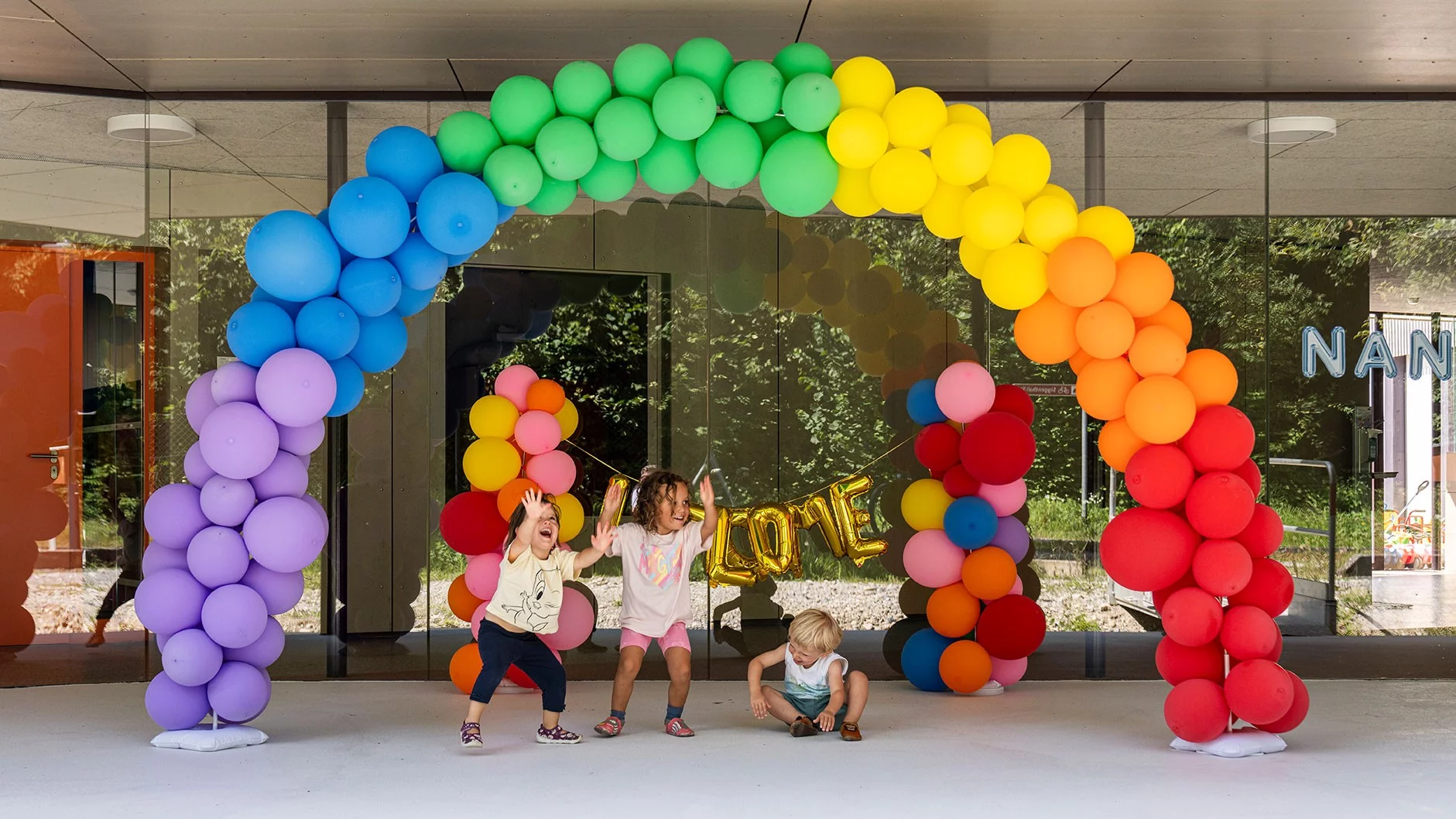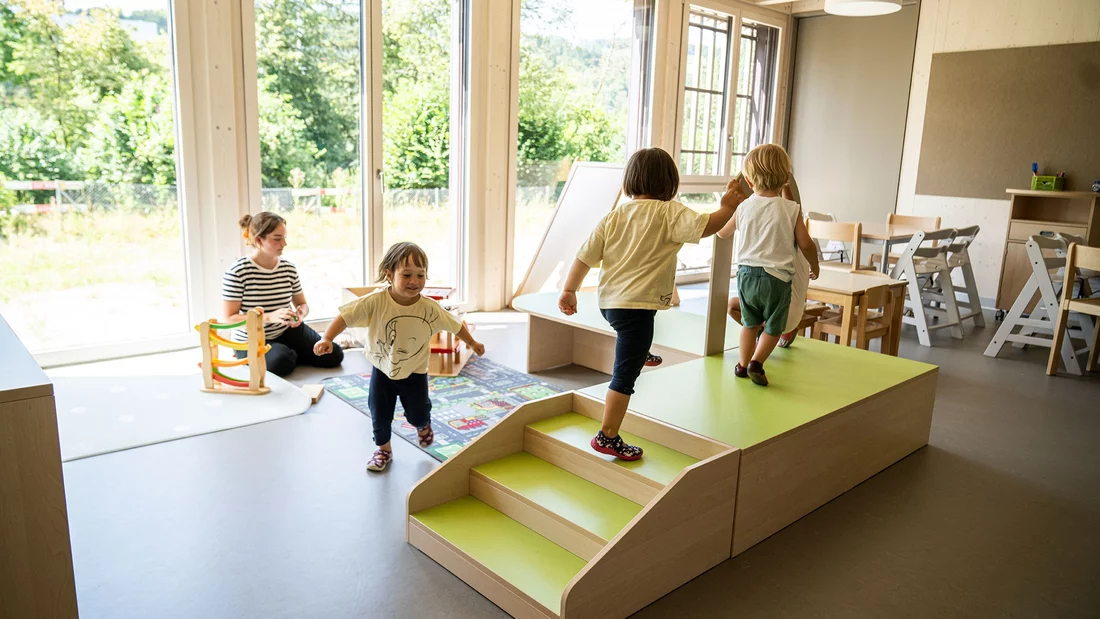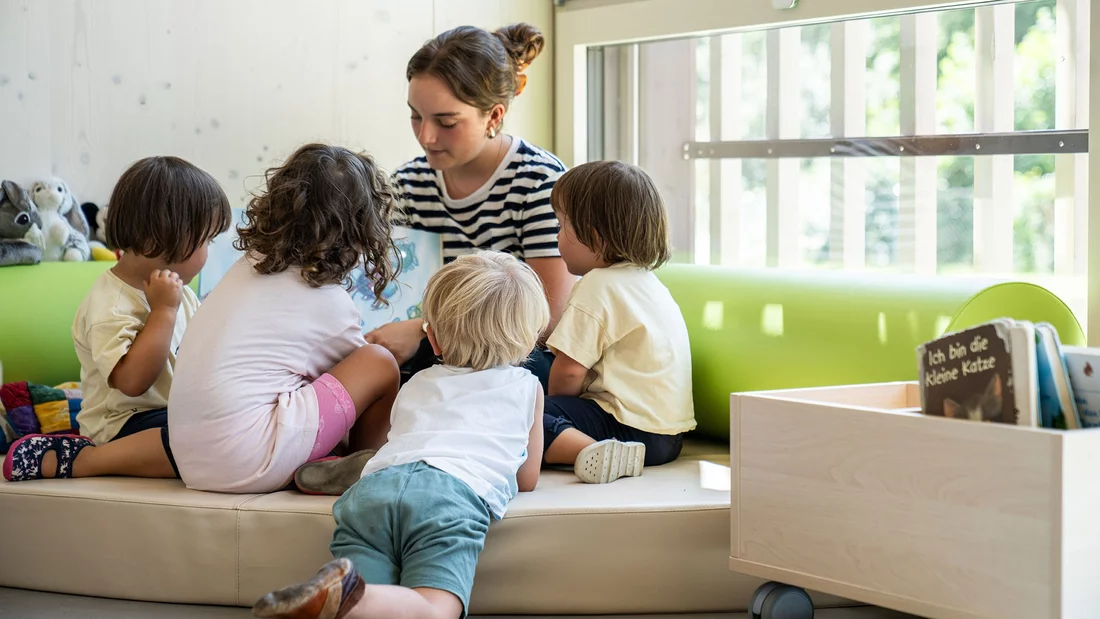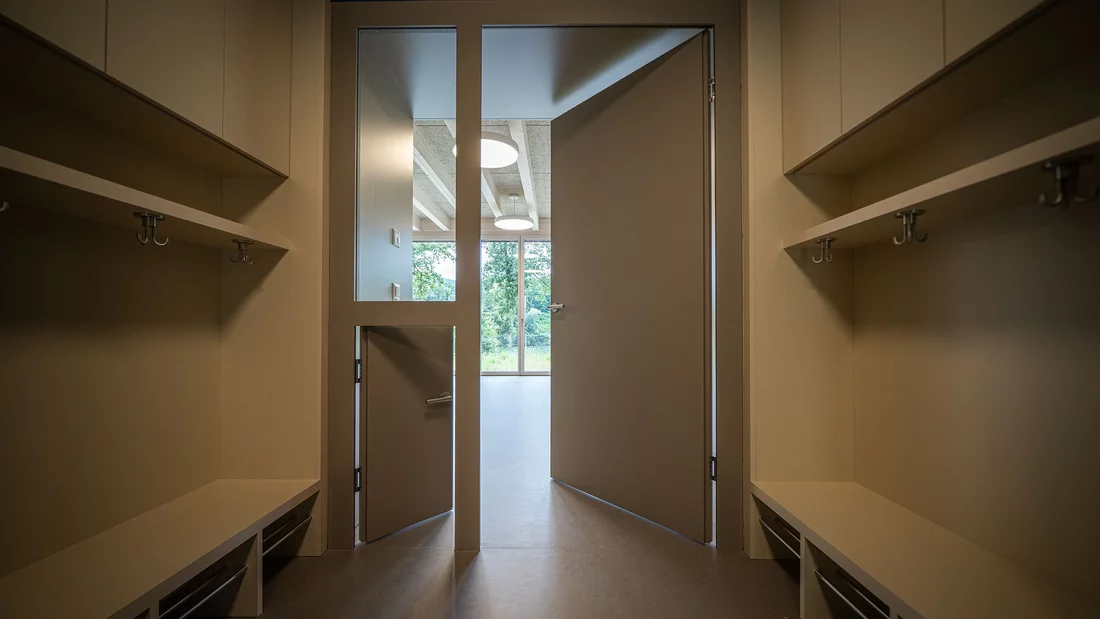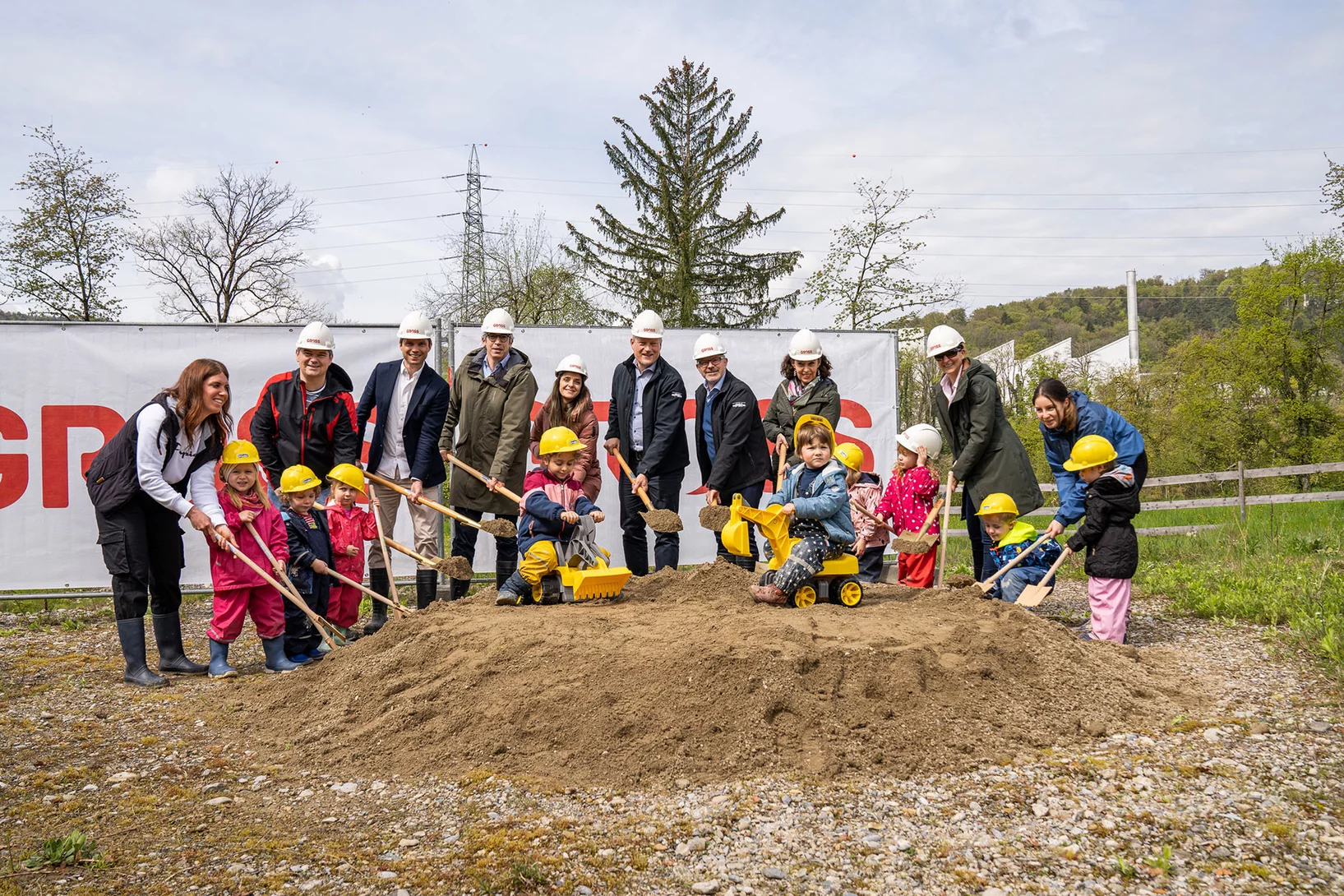The big move has been completed – after four years in the neighbouring municipality of Rüfenach, the day-care children are returning to the PSI campus. The new building is not just a custom-designed child’s dream; it is also perfectly adapted to the adult world and childcare practices.
Over the past few months, people at PSI have been able to watch a very special new building take shape. Building units were brought in and stacked on top of each other like toy building blocks. Step by step, a modern timber structure was assembled for the new day-care centre on the PSI campus. The many colourful toys have moved in, and, as the summer holidays come to an end and the first children arrive, the transition is now complete: the new building is ready. “Almost,” corrects Simone Brunner, head of the PSI day-care centre. “The landscaping work still needs to be completed – there is going to be a huge playground with swings, trees and even a small road network with traffic lights for the Bobby Cars.” It makes you want to be a child again yourself.
To Rüfenach and back again
The PSI day-care centre was set up in 1997 through a parents’ initiative. Over the years, it grew from a single group to a facility with five nursery groups and, at times, a preschool group. Even parents who did not work at PSI could send their children here at times, an offer that was always very popular in the neighbourhood. Until there came a time when a new building was needed.
But where could the many children be accommodated while their day-care centre made way for a building site? “There was simply no suitable building available on the campus,” Brunner recalls. A solution was found, in Rüfenach. In this village, some four kilometres from PSI, a building was available that had previously housed the children’s ward of the Aargau Psychiatric Services. “The great advantage of this building was that it had already been designed for children. It had suitable premises, plenty of space and unique surroundings.” Outside, there were forests, farms and almost no traffic. During the 2020 summer holidays, the PSI day-care centre moved to Rüfenach.
But the picturesque rural setting also had its drawbacks. “In moving away from the campus, the greater distance from their own place of work led many employees to send their children elsewhere,” says Brunner. At the same time, though, the day-care centre was attracting new children with an offer that was unparalleled in Rüfenach and many of the surrounding villages.
But the team working at the day-care centre also noticed the effects of being so far from the campus. “When there is mostly only one bus per hour, public transport becomes a poor alternative.” Facilities such as a cafeteria were also lacking. Brunner and many of her staff are happy to be back on campus after four years. “It’s great to be here again, also in view of the network of colleagues.”
New custom-designed building
But how does one actually go about building a day-care centre? “There are no blueprints,” says Brunner. “Most day-care centres use existing buildings and adapt them to their own work practices. We were very fortunate to be able to design a day-care centre based entirely on our needs.”
The result is a modern timber structure with lots of windows looking out onto nature – situated between the forest and the River Aare. Six groups can be supervised here, and the construction offers the possibility of adding an upper floor for two additional groups at a later date. “PSI needs to think long-term, remain an attractive employer and continue to improve work-life balance." In addition, Park Innovaare means that further employees are moving into the neighbourhood who may need to find childcare nearby.
Until then, however, the six groups will be supervised on one level. This not only makes it easier to keep an eye on everyone, it also gives all the kids direct access to the garden and the future playground. The characteristic L-shape of the building also serves to screen the children from the rest of the PSI campus – so that they can keep to themselves when playing outdoors.
Each group room consists of a small kitchenette, a main room and a side room. Two adjacent groups form a unit and can be connected by opening a large sliding door. This is mainly used during off-peak times when there are fewer children around and therefore fewer carers. “This kind of thing was impossible in Rüfenach – it means an enormous improvement to the way we are able to work.”
Children’s door and breastfeeding room
Many “small” details have been incorporated in the new day-care centre to allow the children to move around as independently as possible. There are small doors right next to the big ones, small washbasins at different heights and small toilets with small cisterns in the little cubicles. “This is meant to promote self-reliance,” says Brunner. “It allows the children to go to the toilet or wash their hands on their own”.
The building also caters for expectant mothers. “Pregnant women can rest in the relaxation room. Nursing mothers also have the option of expressing and storing their milk in a fridge or breastfeeding their children directly.”
All that is missing now is the large playground. “Everything should be green here by spring 2025.” That is when the opening ceremony is to be held. Until then, Brunner is looking forward to further enquiries from parents at PSI and in the surrounding communities because, “We still have some vacancies.”
Text: Paul Scherrer Institute PSI/Benjamin A. Senn
© PSI provides image and/or video material free of charge for media coverage of the content of the above text. Use of this material for other purposes is not permitted. This also includes the transfer of the image and video material into databases as well as sale by third parties.

